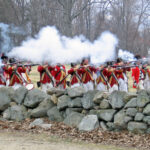Tarrnation Flower Farm & 6 More New England Gardening Experiences
No garden? No problem. A White Mountains flower workshop provides a much-needed nature escape.
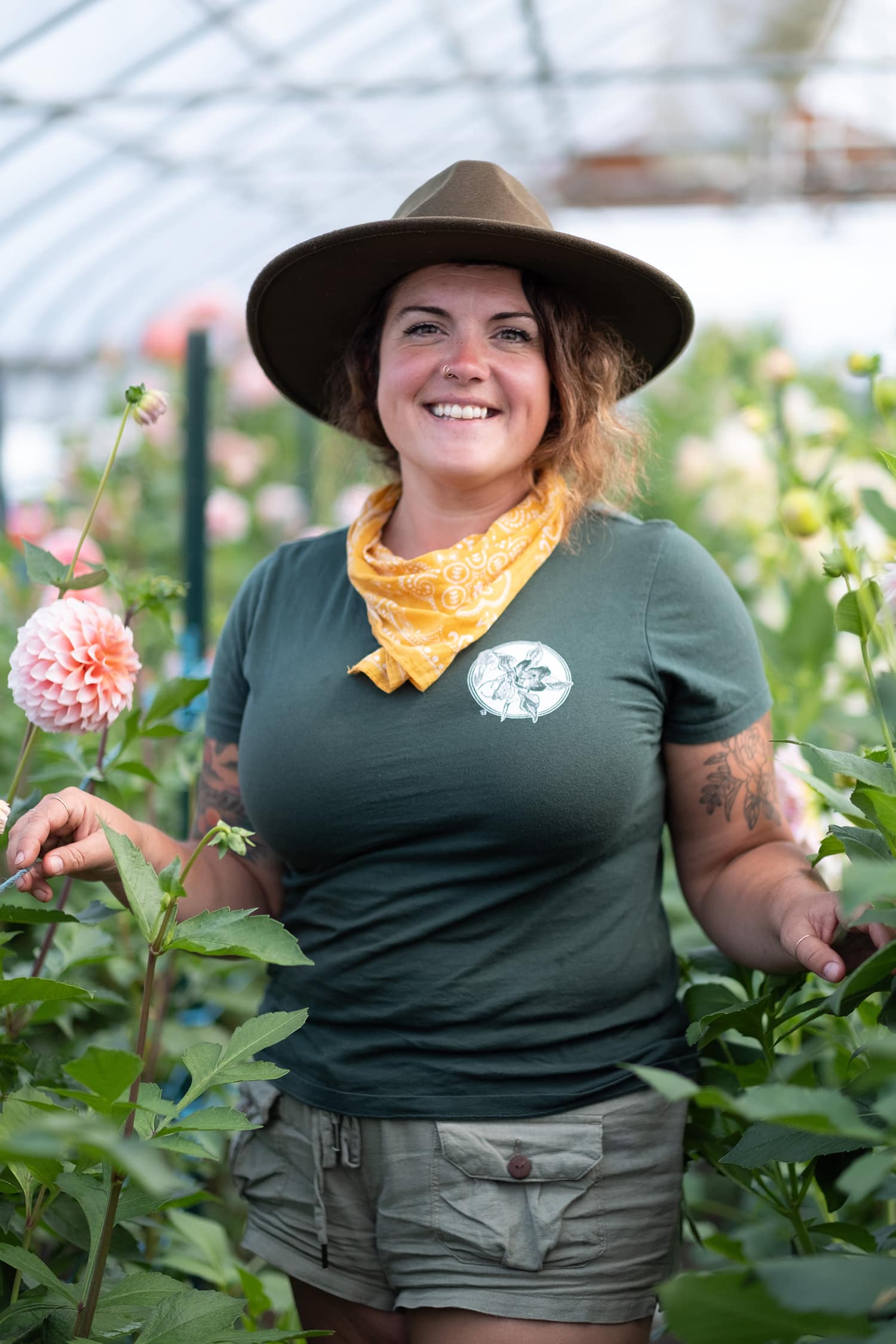
Coffee By Design | Portland, Maine
Photo Credit : Katherine KeenanWhen it comes to gardening these days, any desire I may have to put something into the ground is quickly drowned out by the demands of work and parenthood. I buy those pretty seed packets…but never plant them. I research plans for a pollinator garden…but never buy the supplies. I want to grow my own vegetables…but shopping at the local farm stand is faster (and hey, it lets me support my neighbor farmers!).
Basically, I have the interest but not the time. So what’s a busy garden lover to do? Turn to the Internet, naturally.
After searching for “garden classes near me,” I waved good-bye to my family and headed up to Tarrnation Flower Farm in Sugar Hill, New Hampshire, for a four-hour workshop on dahlias. Tarrnation is a family farm, and instructor Vanessa Tarr is the ultimate farmer: hardworking, resourceful, and blessed with an infectious passion for everything she grows. Her father, Reggie, bought the seven-acre property from a potato farmer in 1997, and Vanessa spent her childhood learning the ropes. She later worked for a local floral designer and on flower farms as far away as Washington and Spain.
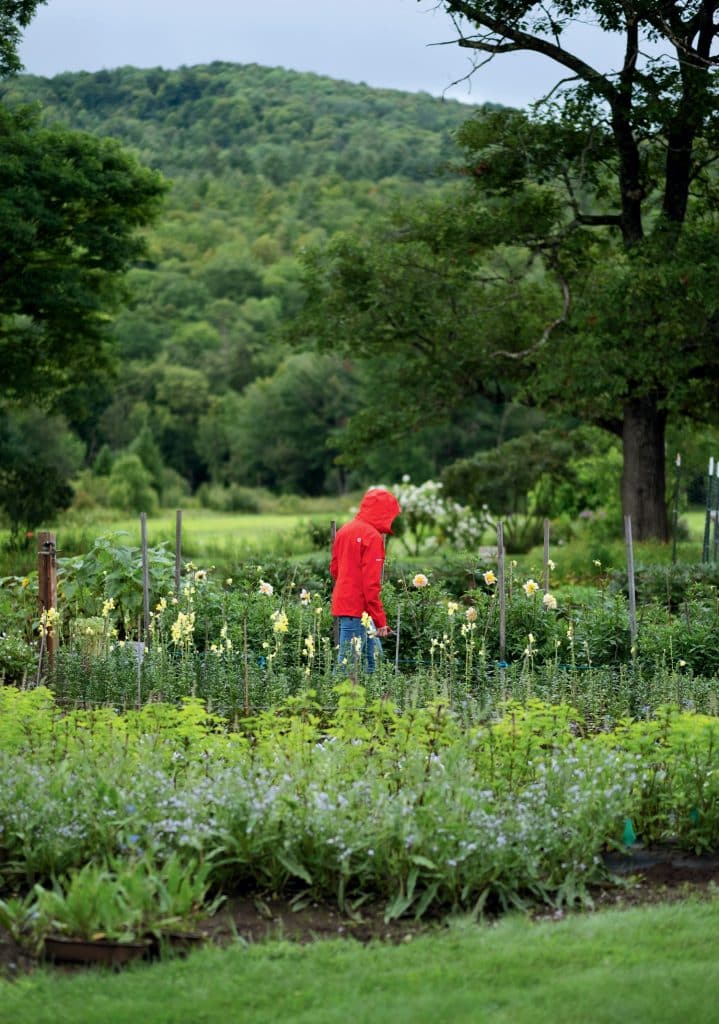
Photo Credit : Heather Marcus
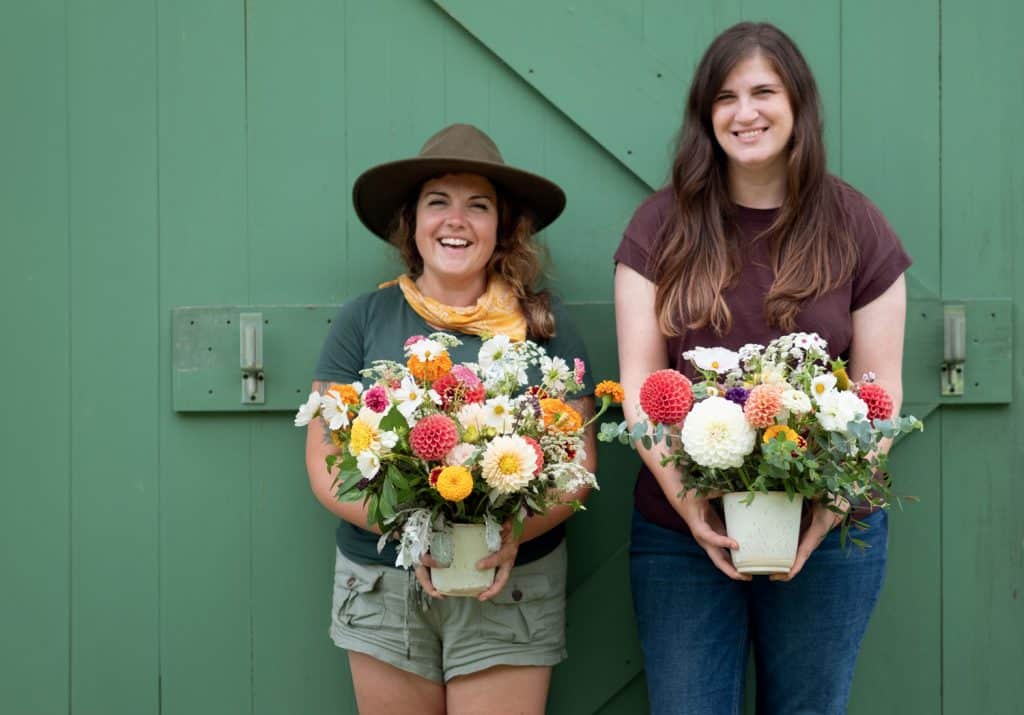
Photo Credit : Heather Marcus
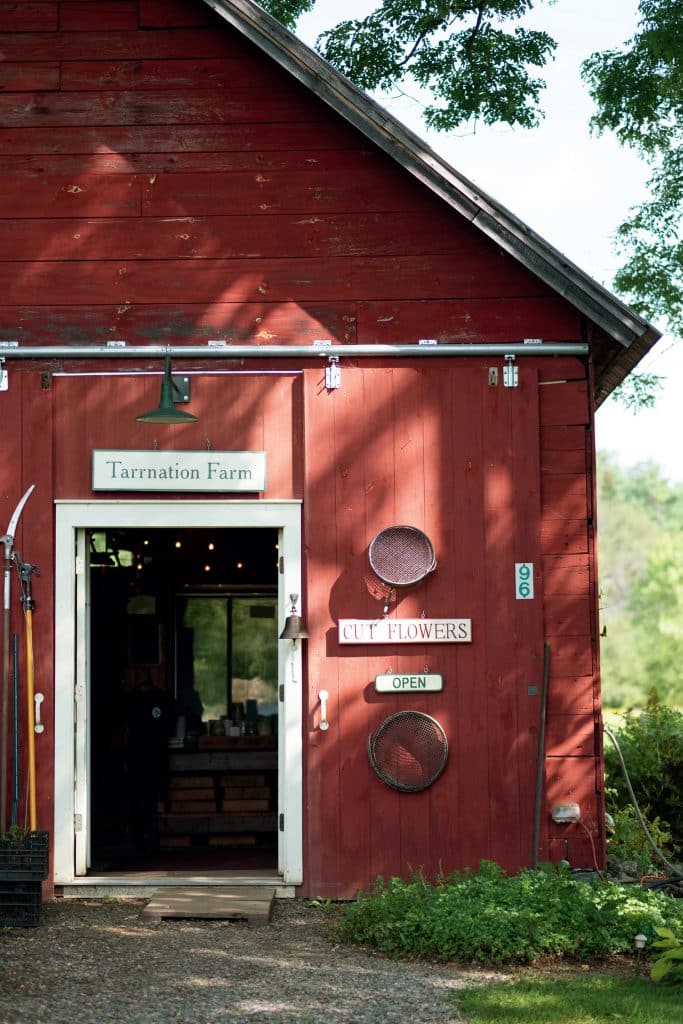
Photo Credit : Heather Marcus
When Reggie stepped back from running the farm 10 years ago, it was the perfect opportunity for Vanessa to lead Tarrnation into becoming the floral paradise it is today. In addition to hosting a farm stand, Tarrnation offers spring and summer “flower shares,” is a regular at the nearby Littleton farmers’ market, hosts workshops like the one I had signed up for, and styles fresh, in-season flowers for weddings and other special events.
Late summer is peak dahlia season, and I was amazed to see how many colors and sizes grew on the farm. Some had tight, spherical blooms with neat curls of petals, while others were huge by comparison (earning them the nickname “dinner-plate dahlias”), with petals that were softer, like a peony’s. As we strolled the open-air beds and greenhouses, clipping blooms for our arrangements, Vanessa cheerfully fielded questions about when to deadhead and how to prevent bug damage without pesticides.
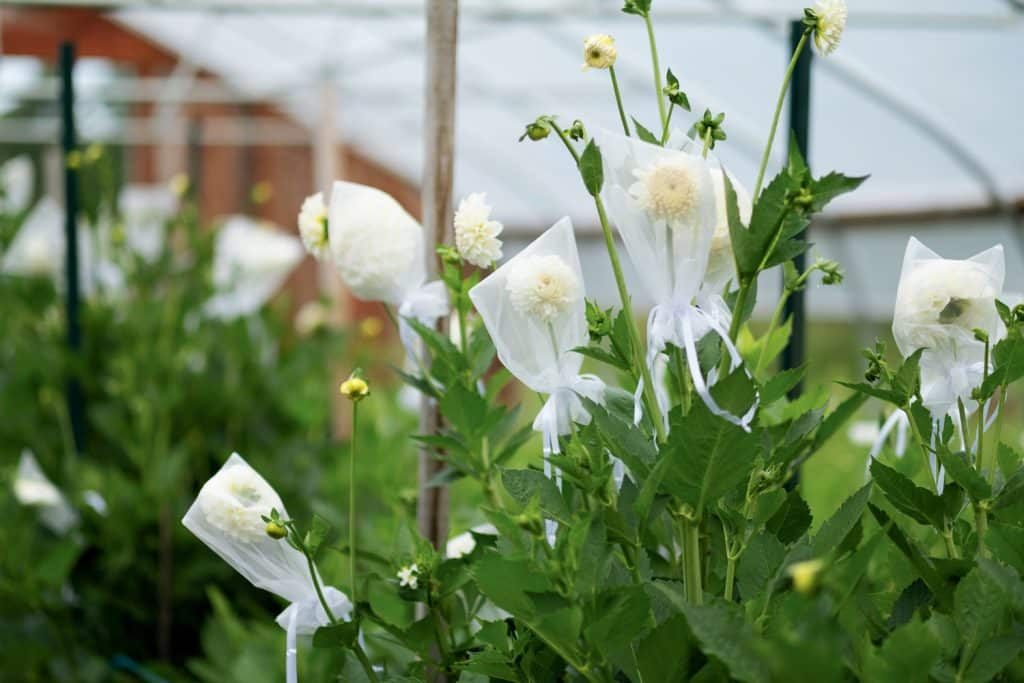
Photo Credit : Heather Marcus
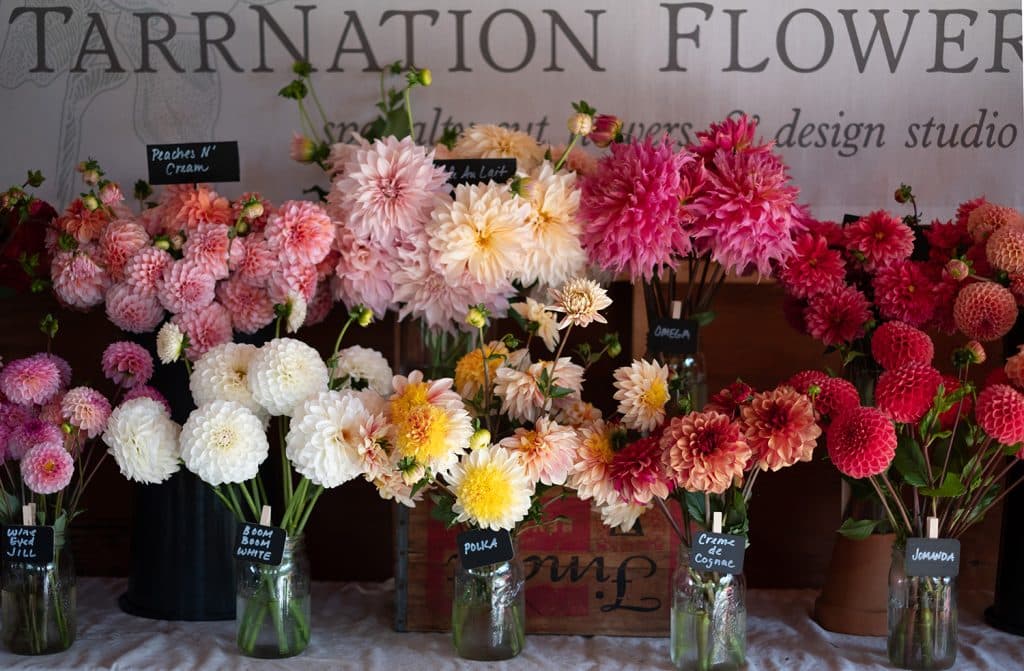
Photo Credit : Heather Marcus
Back in the workshop, she walked us through the steps for creating a show-stopper display, aided by an enormous “flower bar” of bonus blooms to use as we pleased. Using the same materials, nine of us came up with nine totally different arrangements—a lovely reminder of the endless possibilities of nature’s palette.
I had arrived that day knowing only that dahlias have lots of petals and come in lots of colors, but I left brimming with inspiration from an afternoon of learning, creating, and, frankly, just putting my phone down and getting my hands dirty.
I kept my flowers on my kitchen counter until the last petal fell. Every time I looked at them, I remembered the thrill of selecting and snipping each bloom. The satisfaction of finding the perfect spot in the vase. The joys of nature, even in small sips. These days, that’s just the kind of gardener I am. And it’ll do. tarrnationflowerfarm.com
Best Buds 101
Flower arranging doesn’t have to be intimidating. With just a few supplies, you can create something beautiful to gift a friend or enjoy yourself for days to come. Start with fresh flowers from the garden, a farmers’ market, or even your local florist. Along with showstopping blooms, make sure you have a variety of greenery and a supporting cast of secondary flowers in different shapes and colors. Then, with the help of some chicken wire and the perfect vase, you’ll be ready to arrange like a pro.
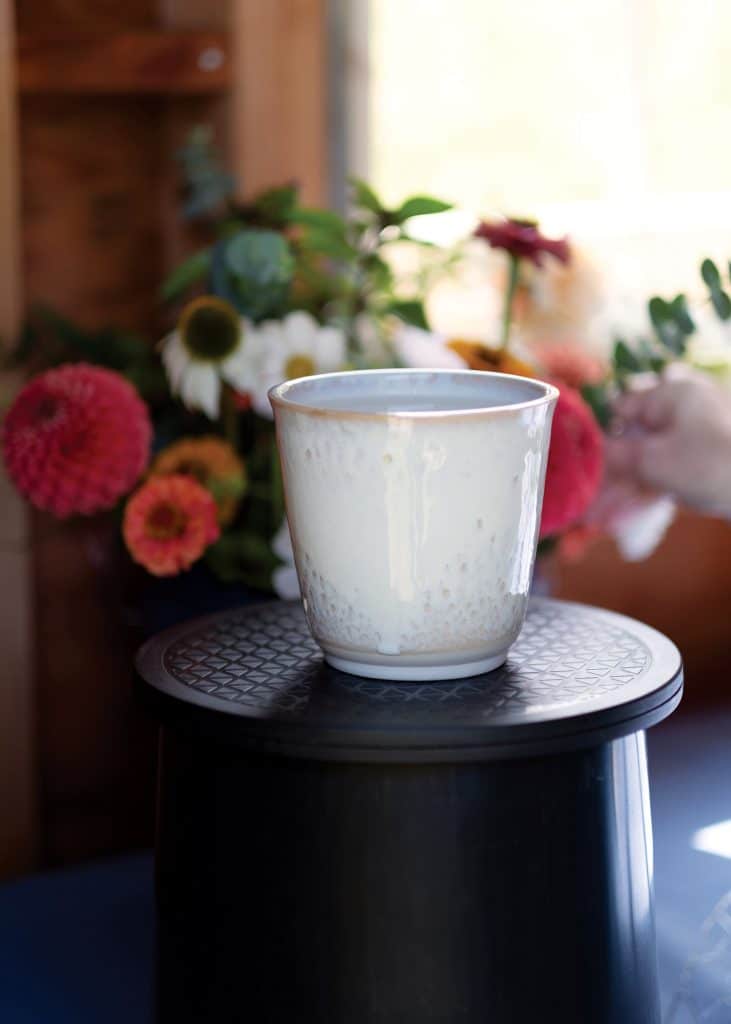
Photo Credit : Heather Marcus
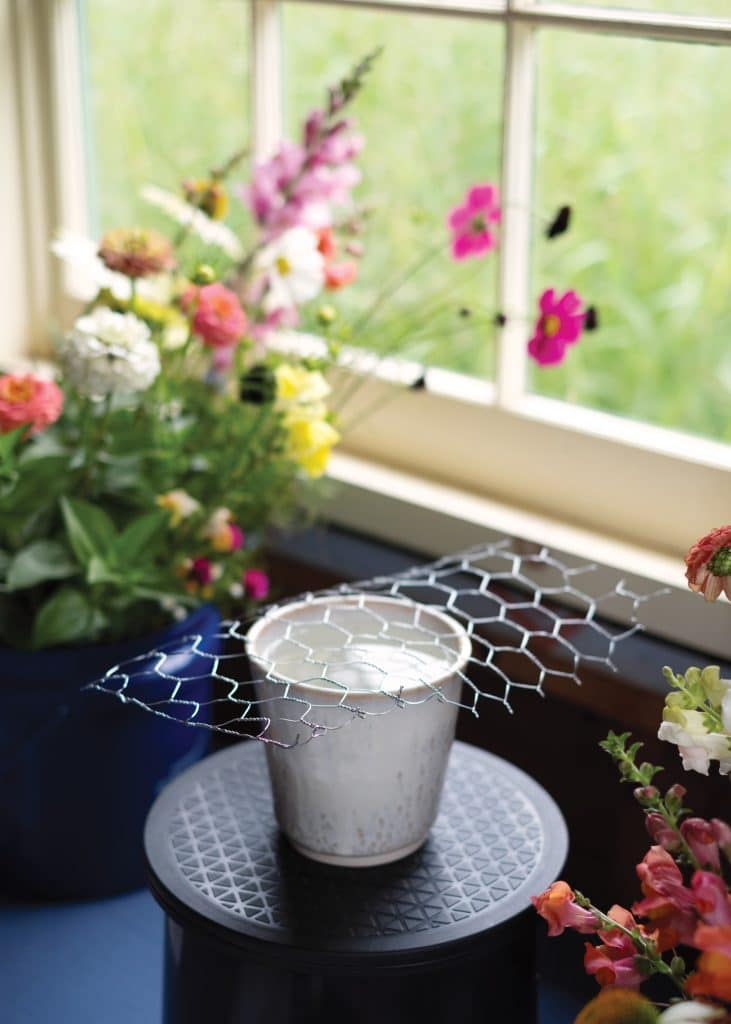
Photo Credit : Heather Marcus
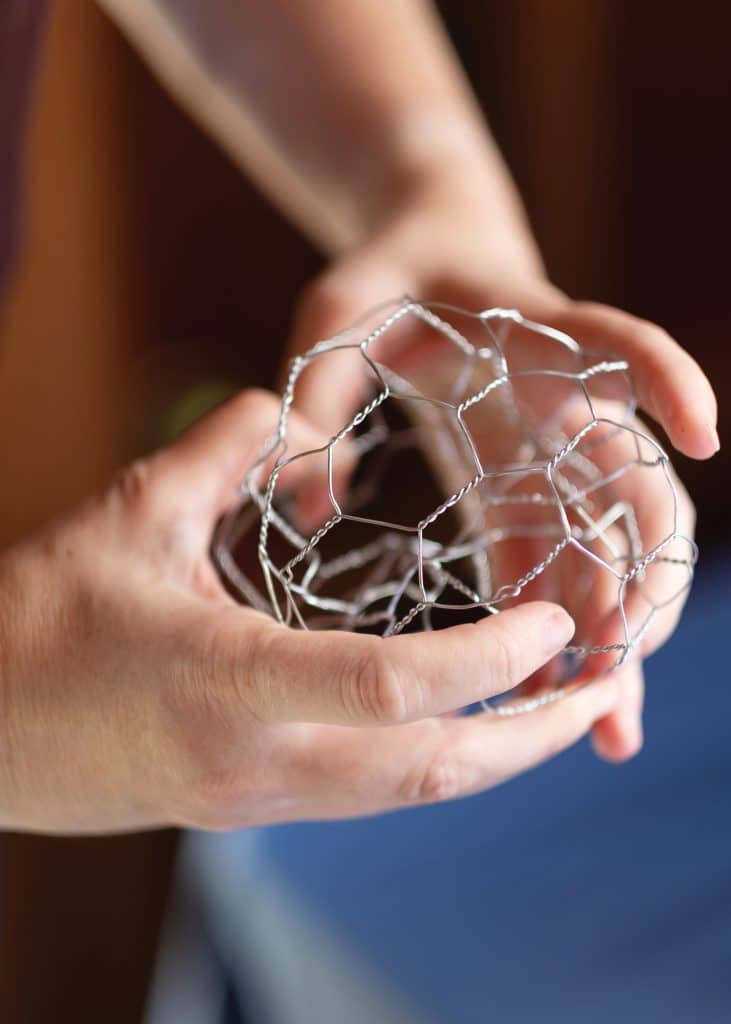
Photo Credit : Heather Marcus
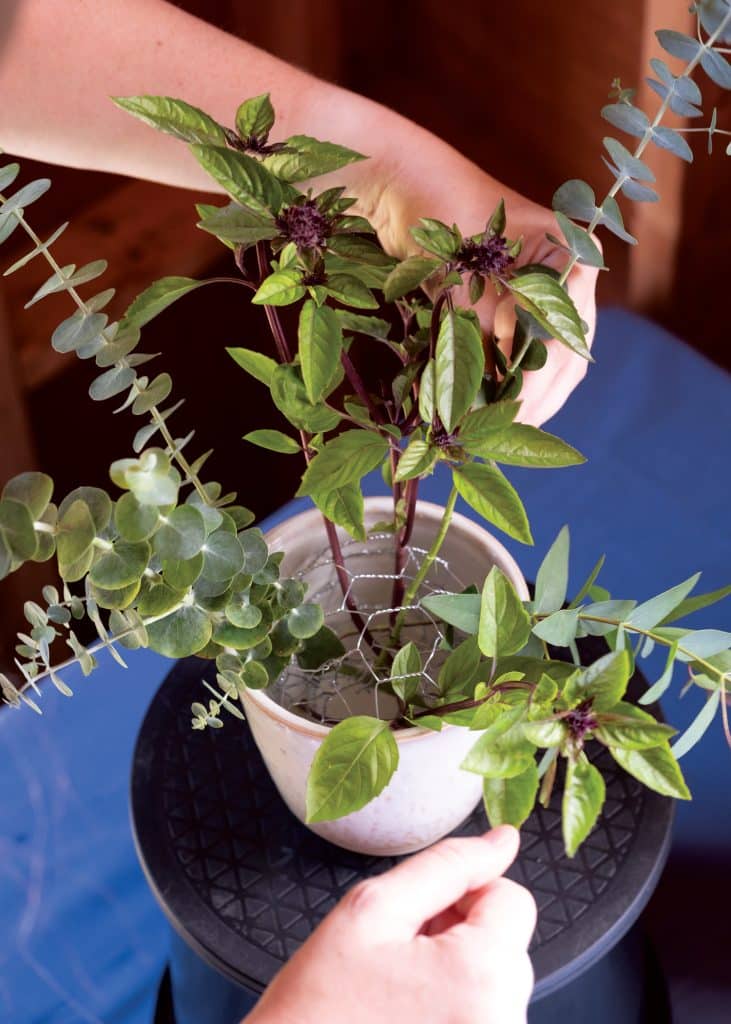
Photo Credit : Heather Marcus
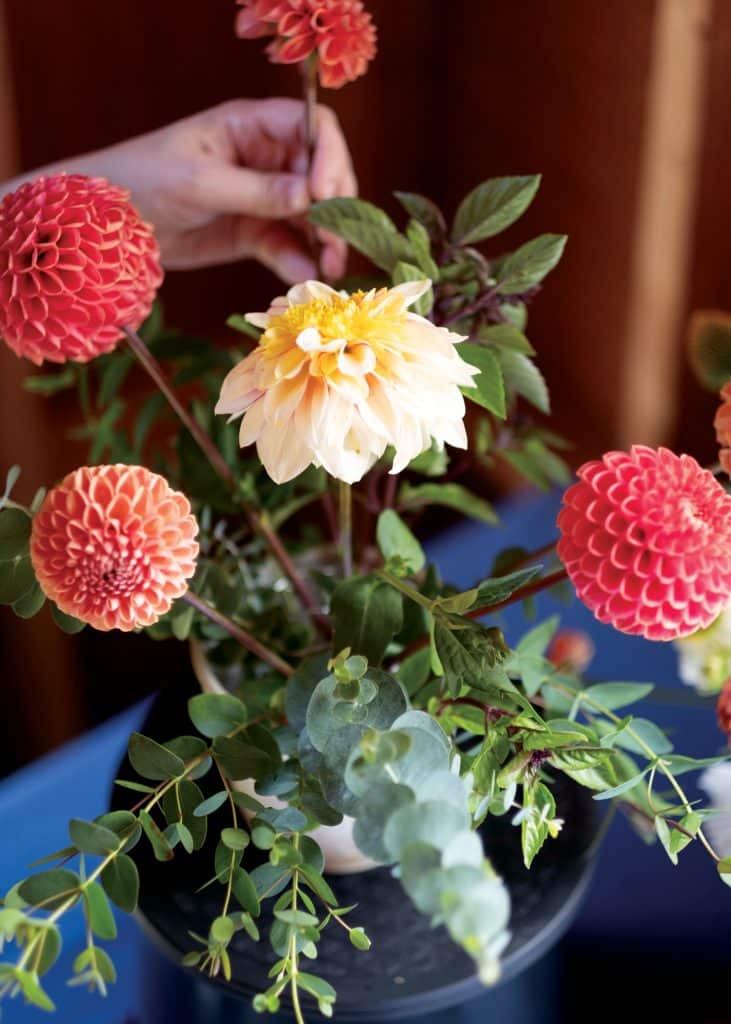
Photo Credit : Heather Marcus
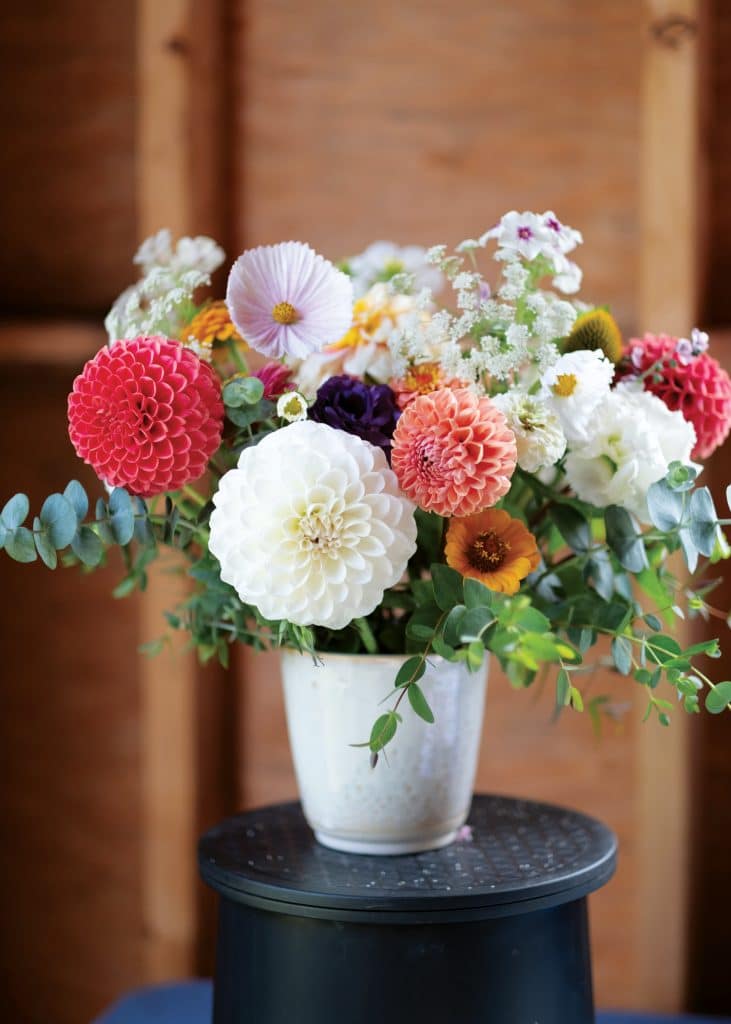
Photo Credit : Heather Marcus
More New England Gardening Experiences
Craving a hands-on gardening experience? These farms, garden centers, and floral design studios are just a sampling of the many places in New England where you can learn, plant, arrange, and share the joys of nature.
Cedar Circle Farm | East Thetford, VT
As part of its larger agricultural educational mission, the nonprofit Cedar Circle Farm offers classes in “plants with a purpose” (think pollinator, medicinal, and edible) and maker-related themes such as create-your-own bouquets, using natural dyes, and crafting macrame plant hangers.
Cross Street Flower Farm | Norwell, MA
With more than 50 varieties of cut flowers, Cross Street Flower Farm hosts regular pick-your-own events throughout the season, including weekly sunset sessions, along with floral design workshops and even yoga classes held in the flower fields.
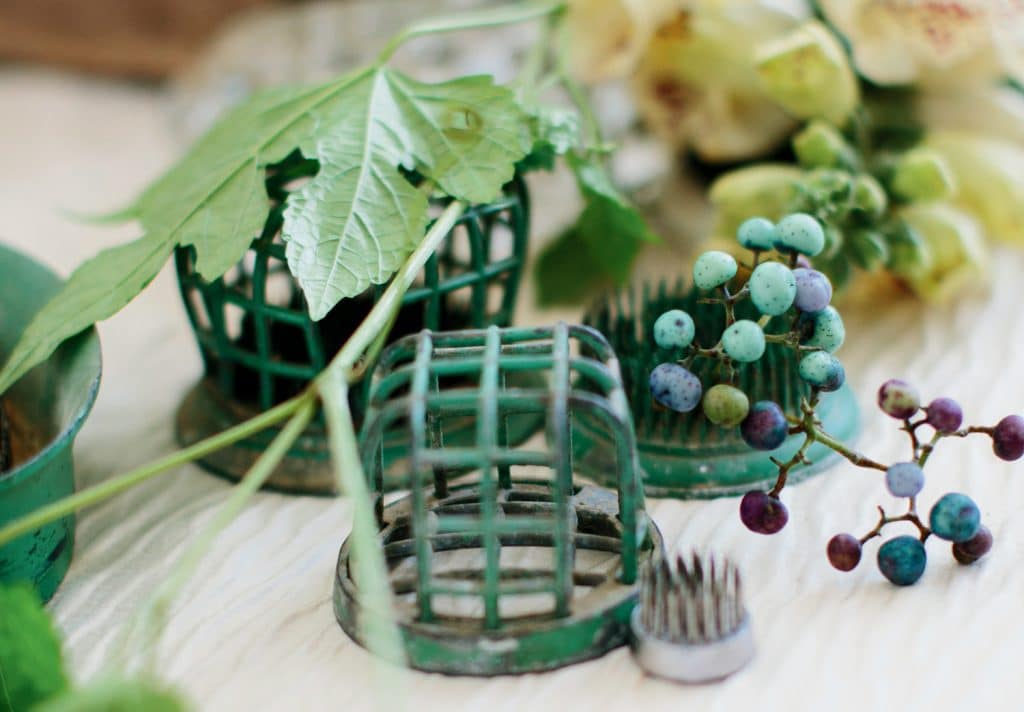
Photo Credit : Erin McGinn
Greenlion Design | Newport, RI
Learn from the pros at Greenlion Design, named one of the top floral design studios in the country by Martha Stewart Weddings. Seasonal workshops teach how to create natural-looking arrangements using floral “frogs,” plus garden-to-vase instruction using flowers and foliage from your own yard.
Foxglove Farmhouse | York, ME
This small-but-mighty flower farm in coastal Maine teams up with nearby Slack Tide Sea Salt to lead unique summer workshops that pair guided floral arrangement with a custom sea-salt blending activity.
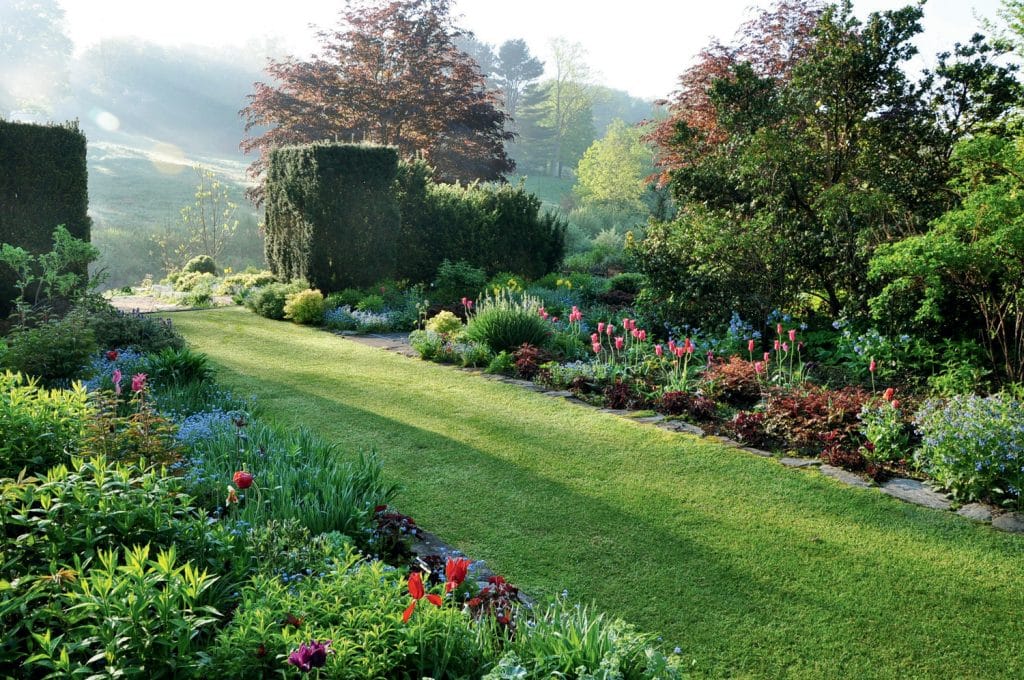
Photo Credit : George Schoellkopf
Hollister House Garden | Washington, CT
Tucked into Connecticut’s Litchfield Hills, Hollister House Garden is an American interpretation of classic English gardens, making it the ideal spot to learn about garden fundamentals, design and planting plans, watercolor journaling, and flower arranging.
Snug Harbor Farm | Kennebunk, ME
The legendary coastal Maine garden center and lifestyle boutique offers a plethora of workshops on themes like succulents, kokedama (moss-covered balls of soil), container annuals, and summer tablescapes.




